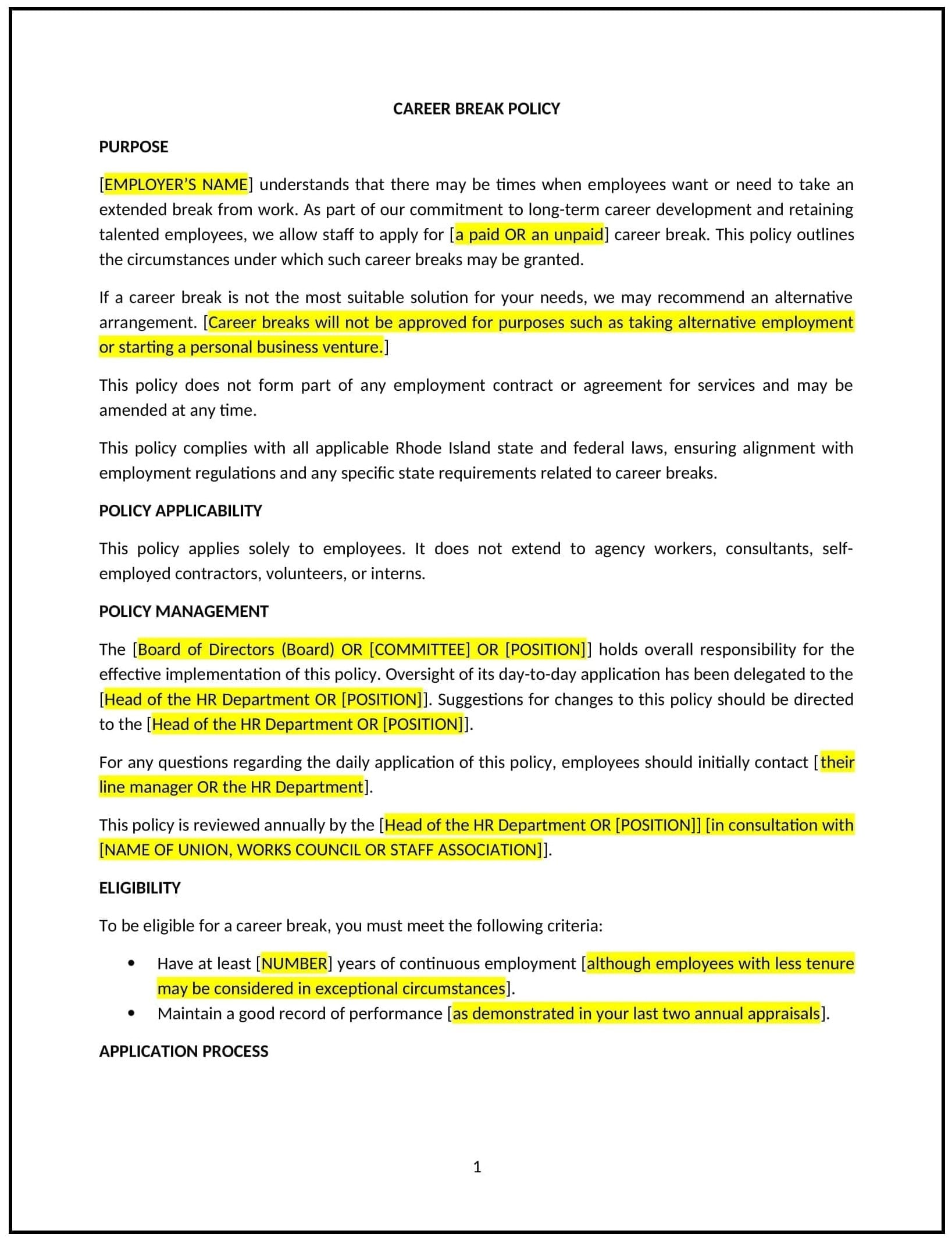Got contracts to review? While you're here for policies, let Cobrief make contract review effortless—start your free review now.

Customize this template for free
Career break policy (Rhode Island)
This career break policy is designed to help Rhode Island businesses establish guidelines for employees taking extended time off from work for personal or professional development reasons. It outlines procedures for requesting a career break, maintaining job protection, and ensuring a smooth transition back to work.
By adopting this policy, businesses can support employee well-being, retain top talent, and align with general best practices for workforce flexibility.
How to use this career break policy (Rhode Island)
- Define career breaks: Explain what constitutes a career break, such as time off for education, travel, caregiving, or personal projects.
- Establish eligibility criteria: Specify which employees are eligible for a career break, such as those who have worked for a certain period or meet performance standards.
- Set request procedures: Provide steps for employees to request a career break, including required notice and approval processes.
- Address job protection: Guarantee that employees will return to the same or an equivalent position after completing their career break.
- Train managers: Educate supervisors on handling career break requests and maintaining workflow during employee absences.
- Review and update: Assess the policy annually to ensure it aligns with evolving business needs and workforce standards.
Benefits of using this career break policy (Rhode Island)
This policy offers several advantages for Rhode Island businesses:
- Supports employee well-being: Demonstrates a commitment to helping employees achieve personal or professional goals.
- Retains top talent: Encourages employees to return to the business after their break, reducing turnover.
- Aligns with best practices: Provides a structured approach to managing career breaks.
- Builds trust: Shows employees that the business values their personal and professional growth.
- Enhances flexibility: Offers employees the opportunity to take extended time off without losing their job.
Tips for using this career break policy (Rhode Island)
- Communicate the policy: Share the policy with employees and include it in the employee handbook.
- Provide training: Educate managers on handling career break requests and maintaining workflow during employee absences.
- Monitor adherence: Regularly review career break requests to ensure they are addressed promptly and fairly.
- Address issues promptly: Take corrective action if career break requests are mishandled or denied improperly.
- Update regularly: Assess the policy annually to ensure it aligns with evolving business needs and workforce standards.